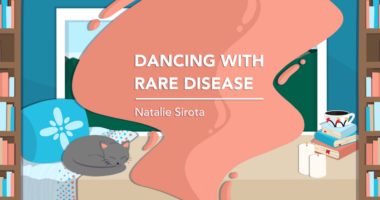The Peculiar Misunderstanding of Layman Experts

“Oh, I had that,” said the woman on the other end of the phone line.
I had to cancel a meeting I had scheduled because my oldest daughter, whom we fondly refer to as Ladybug, was having a flare that would eventually lead to hospitalization.
Although I couldn’t see the semi-stranger on the phone, I imagined she was stirring her overly priced latte while leafing through a magazine with pictures of expensive, unnecessary collectibles. And even though none of that was probably true, it was the tone of her voice that I found most annoying.
“Childhood diseases are a funny thing,” she continued. “But I’m sure she’ll grow out of it.”
I sighed at the last sentiment. It wasn’t the first time I had heard this sentence from a person. Whenever I would reveal that Ladybug had hereditary angioedema (HAE), the majority of responses ended with phrases like “She’ll grow out of it,” or “I’m sure it’ll get better,” or my personal favorite, “Once they find out what she’s allergic to, she’ll be fine.”
But none of those things was true.
Later, when Ladybug was being admitted to the hospital for the fourth time in a month, before Berinert and Takhzyro (lanadelumab), these same people would attempt to help me “troubleshoot” the problem. Maybe it was what she was eating, or perhaps our house needed a deep cleaning, or we needed to take her off all medications to see which one was causing the problem. Everybody was an “expert.”
I got to a point where I was exhausted explaining the truth behind Ladybug’s condition. Because I was already frustrated managing the unknown factors that come with HAE, the mounting advice added more stress.
“I know what that is,” someone said to me one day after another set of plans fell through. Unfortunately for them, I had reached my limit of people’s faux understanding.
“Really?” I asked. “You know what that is? You’ve heard of this very rare disease?”
If it were a movie, my subsequent rant to them about HAE statistics, symptoms, and complications would have silenced them into embarrassment. It would have grown louder and more intense as I yelled that we had tried everything, talked to countless experts, and seen the best doctors. It would have quieted the surrounding patrons that were unfortunate to witness such an outburst.
But it was real life.
And I didn’t rant so much as I tried to inform, which predictably led to their advice about what I should do to help Ladybug get better. But unfortunately, despite my best efforts, I couldn’t get this person, or the average person, to stop dishing out their personal and misguided expertise.
Eventually, after pointless corrections and thwarted suggestions, I stopped talking about it altogether. I was convinced that I was destined to be the receiver of endless advice-givers who would hear my explanation as it went in one ear and out the other.
It took me a while to realize that most people were coming from a place of genuineness. Sometimes, they could see how tired I was, how stressed our situation had become, or how stretched thin we were, and they were offering what they believed would truly help. Their “grasping at straws” to recommend the best course of action was simply a desperate attempt to discover something that would bring us relief.
I no longer tense with irritation when someone relays their outlook on what would help Ladybug “get better.” Instead, I smile, let them know she has great doctors, and assure them that while they might not have all the answers, we’re grateful that they care enough to try.
Note: Angioedema News is strictly a news and information website about the disease. It does not provide medical advice, diagnosis, or treatment. This content is not intended to be a substitute for professional medical advice, diagnosis, or treatment. Always seek the advice of your physician or other qualified health provider with any questions you may have regarding a medical condition. Never disregard professional medical advice or delay in seeking it because of something you have read on this website. The opinions expressed in this column are not those of Angioedema News or its parent company, Bionews, and are intended to spark discussion about issues pertaining to angioedema.








Leave a comment
Fill in the required fields to post. Your email address will not be published.